A data management platform (DMP) is a data analysis and data management software solution used by many companies to aggregate, store, and analyze data from multiple sources. These many sources include a company’s own systems and third party data. Most big data management platforms have features that complement data analytics software as key tools to help organize audiences into specific segments.
While all DMPs offer these core features, there is a lot of variation in how they function.
Some data management platforms act like data warehouse tools for marketing data. They collect data from multiple sources and integrate it into many different applications. These data management platforms are essentially the “pipes” connecting a diverse set of data tools.
Other DMPs are integrated with demand-side platforms, or DSPs. DSPs automate media buying across digital platforms, helping organizations find the most cost-effective way to reach their target audience and find appropriate second party data, third party data, and even first party data. These DMPs function as add-ons, providing more value to the core DSP.
Several other DMPs fall outside these two broad categories. They might integrate with CRM systems or act as a part of a media outlet’s tools, which they use to court advertisers. Moving forward, data management platforms will increasingly incorporate machine learning and artificial intelligence.
Because data management platforms come in so many different varieties, shopping for the best vendor can be complex. Read on for tips on how to select the right tool for your business data needs.
The following tips can help you find the best DMP for your organization:
With these tips in mind, here are ten data management platform vendors you might want to consider:
Jump to:
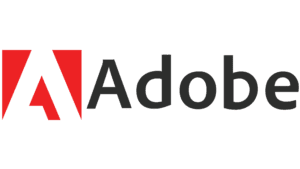
Although best known for its design software and other tools for creative professionals, Adobe also offers a range of tools for marketing and commerce, as well as other business solutions. Founded in San Jose, California in 1986, Adobe has grown to an $11.7 billion company with more than 22,000 employees worldwide. Its stock is traded on the NASDAQ exchange under the symbol ADBE.
This Adobe solution allows organizations to collect data from a wide variety of sources, build new audience segment models, and uncover new insights. Well-known users include Hyatt, Virgin Holidays, National Bank of Canada, Sky, and others. Forrester named it a leader in its Forrester Wave report for Data Management Platforms.
Pros
Cons

Geared as an independent advertising platform, Amobee offers end-to-end campaign and portfolio management that includes DMP capabilities. Founded in 2005 in Foster City, California, the company was acquired by Singapore-based Singtel for $321 million in 2012, but it continues to do business under the Amobee name. It has won numerous awards as a great place to work, and it has offices throughout North America, Europe, the Middle East, and the Asia-Pacific region.
The Discover tool within the Amobee platform includes many data management capabilities, such as audience intelligence, segment creation, sentiment and trends, data onboarding, and more. It also integrates with the rest of the Amobee platform for media planning, execution, optimization, and analysis. Its users include Pringles, Kia, the NBA, Evian, Spotify, Airbnb, Fiat, and many others.
Pros
Cons
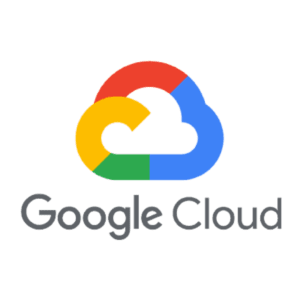
Similar to Amobee, Google offers a unified marketing platform that combines data management with advertising on Google Cloud. Google, of course, is one of the most popular places to purchase advertising, bringing in $37.1 billion in revenue in the third quarter of 2020. Headquartered in Mountain View, California, it is a subsidiary of Alphabet.
Google divides the Google Marketing Platform into two different formats: small business and enterprise. In the enterprise category, it offers integration with Google Analytics, which incorporates DMP capabilities. Its features include reporting, segmentation, visualization, and predictive analytics.
Pros
Cons
Pro tip: Need more advanced data management solutions that will integrate with your current toolkit? Consider working with SAS Data Management and the SAS Integration Studio.
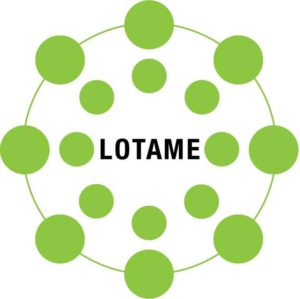
Founded in 2006, Lotame is focused on offering a leading unstacked data solution. Its clients include CBC, IBM, Omnicom Media Group, McClatchy, and many other marketers, publishers, media firms, and agencies. Headquartered in New York City and Columbia, Maryland, it also has offices in Argentina, London, Mumbai, Singapore, and Sydney. Privately held, it has raised an estimated $61.7 million in venture capital.
The Lotame DMP consists of four integrated products: Lotame Lab for building, audience segments, and scaling audiences; Lotame Connect for ingesting customer data; and Lotame Data Exchange for purchasing audience data. The company takes pride in the fact that its platform is unbundled, so customers don’t have to purchase any technology or services they don’t need. It’s also media-agnostic so that users can ingest data from virtually any source.
Pros
Cons
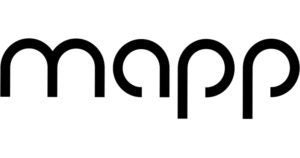
Formerly known as Mapp Digital, Mapp was founded in 1998 as a digital marketing technology company. Its customers include CBS Interactive, Lamborghini, Lloyds Banking Group, Pepsico, Unilever, and others. Privately held, the company has offices in San Diego, California, and in several European countries.
The company’s platform, Mapp Cloud, includes four distinct pieces: Mapp Acquire for customer acquisition, Mapp Engage for customer engagement, Mapp Intelligence for analytics, and Mapp Connect for APIs to connect with other tools and partners. Its DMP capabilities include centralized data collection, unified customer profiling, segmentation, and more. It also offers email marketing capabilities.
Pros
Cons
Cons

Founded in 2007, MediaMath offers a demand-side platform (DSP) with data management capabilities. It boasts more than 3,500 active advertisers, including Coca-Cola, IBM, eBay, SAS, and others. It is headquartered in New York City and has more than 500 employees.
Media Math’s platform offers a range of media buying and audience management capabilities, including campaign management, media management, creative management, targeting, identity management, and consumer segments development. Its segmentation tool can incorporate third-party data, and it coordinates campaigns across display, mobile, connected TV, video, audio, digital out of home, and native channels.
Pros
Cons
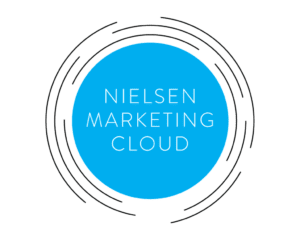
Long known as the company behind television ratings, Nielsen has branched out to offer other media-related products and services. Headquartered in New York City, it has been in business since 1923 and has operations in more than 100 countries. In 2019, it reported $6.5 billion in revenue. It is traded on the New York Stock Exchange under the symbol NLSN, and it is a component of the S&P 500.
Part of Nielsen Marketing Cloud, this platform connects to Nielsen audience data and also includes AI capabilities. Its features include media planning, profiling, segmentation, orchestration, in-flight analytics, message sequencing, reach and frequency, frequency capping, and more. It also integrates with many third-party applications.
Pros
Cons
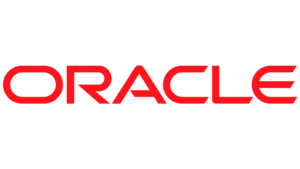
Although best known for its database software, Oracle offers a wide range of technology products and services. Headquartered in Redwood City, California, it has been in business since 1977. It is traded on the New York Stock Exchange under the symbol ORCL, and it is a component of the S&P 500 and the S&P 100. In its fiscal 2020 filing, it reported $39.07 billion in revenue.
Oracle’s Customer Experience (CX) solution includes the Oracle BlueKai data management platform and integrates with Oracle’s database software, allowing organizations to tie their customer experience data with their financial data. It can handle both B2C and B2B, and it includes campaign management, segmentation, personalization, customer acquisition, customer intelligence, data activation, smart content, and other capabilities.
Pros
Cons
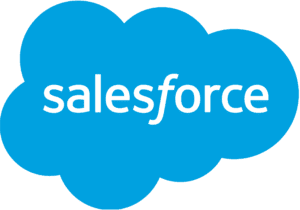
Salesforce is the world’s leading provider of customer relationship management (CRM) software and was one of the first companies to fully embrace cloud computing as its business model. It has also won numerous awards for being an admired company and a great place to work. Its headquarters is in San Francisco, California, and it is traded on the New York Stock Exchange under the symbol CRM. In the fiscal year 2020, it reported $17.1 billion in annual revenue.
As you might expect, Salesforce CDP (customer data platform) integrates closely with the Salesforce CRM platform. It is part of a portfolio that includes data capture, data quality management, identity resolution, and segmentation. It also leverages Salesforce’s Einstein AI technology. Customers who previously used Salesforce Audience Studio, a Salesforce DMP, are being funneled into Salesforce CDP as Audience Studio is being discontinued.
Pros
Cons
Pro tip: Looking for other CDP vendors? Microsoft Azure might be an option.
Founded in 2009, The Trade Desk says that it aims to transform media for the benefit of humankind. It is primarily a demand-side platform but also offers a DMP and other media-related tools and services. The company is headquartered in Ventura, California. It is an all rights reserved, traded company on the NASDAQ under the symbol TTD, and in 2019, it reported revenue of $661 million.
The Trade Desk’s DMP technology solutions include audience segmentation, lookalike modeling, third-party customer data integration, and a data marketplace. It is part of the overall platform and not available as a separate product. Users include Anheuser-Busch, Safelite AutoGlass, Home Chef, Meineke, and others.
Pros
Cons
Read next: Top Data Analysis Software
| DMP Software | Pros | Cons |
| Adobe Audience Manager |
· Integration with other Adobe tools · Virtual model · Ingests structured and unstructured data |
· Long load times · Difficult to learn · Expensive |
| Amobee |
· Full-featured platform · Simplifies advertising management · Excellent customer support |
· Expensive · Not user-friendly · Overwhelming features |
| Google Marketing Platform |
· Integrates with Google · Incorporates web data insights · Advanced predictive analytics |
· Inadequate integration with other data sources · Lack of support in developing countries · Inadequate channel management |
| Lotame |
· Unbundled purchasing model · Award-winning customer service · Highly flexible |
· Inadequate automation · High prices · Overwhelming features |
| Mapp Cloud |
· Tailored solutions for industry verticals · 360-degree view of customers · Incorporates email marketing |
· Not user-friendly enough · Poor social media capabilities · Poor globalization capabilities |
| MediaMath |
· Integration with DSP · Easy-to-use interface · Excellent customer service |
· No standalone DMP · Expensive · Not very flexible |
| Nielsen DMP |
· Incorporates Nielsen rating data · Advanced AI · Multiple awards |
· Lock-in · Difficult to use · Inadequate communication about updates |
| Oracle CX Marketing |
· Integration with Oracle DB · Combines CRM and DMP · Powerful features |
· Difficult deployment · Overwhelming features · Expensive |
| Salesforce CDP |
· Integration with Salesforce CRM · Highly customizable · Compliance features |
· Buggy · Lack of integration with other applications · Limited ad insights |
| The Trade Desk |
· Integrated with a DSP · Named a leader · Good customer reviews |
· No standalone DMP · Difficult to share datasets · Inadequate customization |
Read next: Database Market

Datamation is the leading industry resource for B2B data professionals and technology buyers. Datamation's focus is on providing insight into the latest trends and innovation in AI, data security, big data, and more, along with in-depth product recommendations and comparisons. More than 1.7M users gain insight and guidance from Datamation every year.
Advertise with TechnologyAdvice on Datamation and our other data and technology-focused platforms.
Advertise with Us
Property of TechnologyAdvice.
© 2025 TechnologyAdvice. All Rights Reserved
Advertiser Disclosure: Some of the products that appear on this
site are from companies from which TechnologyAdvice receives
compensation. This compensation may impact how and where products
appear on this site including, for example, the order in which
they appear. TechnologyAdvice does not include all companies
or all types of products available in the marketplace.